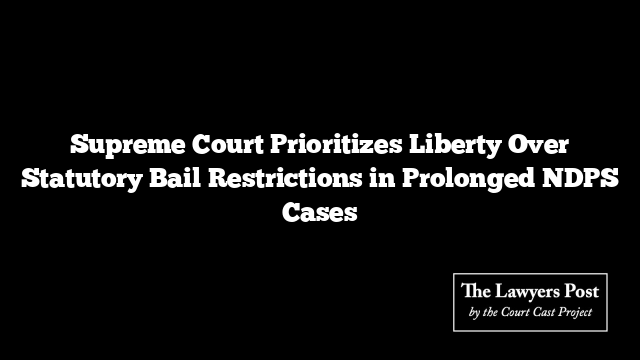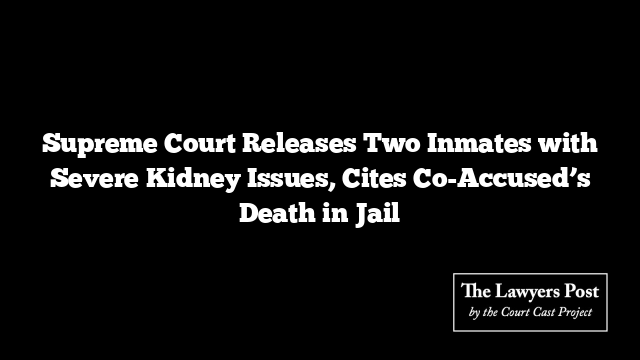In a recent landmark decision, the Supreme Court ruled that the liberty of an accused must take precedence over the statutory embargo on bail under the Narcotic Drugs and Psychotropic Substances Act (NDPS Act) if the trial fails to conclude within a reasonable timeframe.
A bench comprising Justices JK Maheshwari and KV Viswanathan emphasized that the restriction on bail imposed by Section 37(1)(b) of the NDPS Act should not apply in cases where prolonged incarceration infringes on the fundamental right to liberty enshrined in Article 21 of the Constitution.
The Court highlighted, “Failure to conclude the trial within a reasonable time resulting in prolonged incarceration militates against the precious fundamental right guaranteed under Article 21 of the Constitution of India. Thus, conditional liberty overriding the statutory embargo under Section 37(1)(b) of the NDPS Act may be considered in such circumstances.”
This observation came while granting bail to Ankur Chaudhary, who had been in custody for over two years with his trial yet to be completed. Chaudhary faced charges for operating a factory that allegedly produced a substantial amount of Alprazolam Powder, a banned substance. His previous bail applications were rejected by both the trial court and the Madhya Pradesh High Court, prompting him to approach the Supreme Court.
Senior Advocate Sidharth Dave, along with advocates Prateek Yadav, Akriti, Rajesh Ranjan, and Adil Vasudeva, represented Chaudhary. The State of Madhya Pradesh was represented by advocates Pashupathi Nath Razdan, Mirza Kayesh Begg, Maitreyee Jagat Joshi, Astik Gupta, Akanksha Tomar, Argha Roy, Ojaswini Gupta, and Ruby.
The Supreme Court’s decision underscores the judiciary’s commitment to upholding individual liberty, even in the face of stringent statutory provisions under the NDPS Act.





